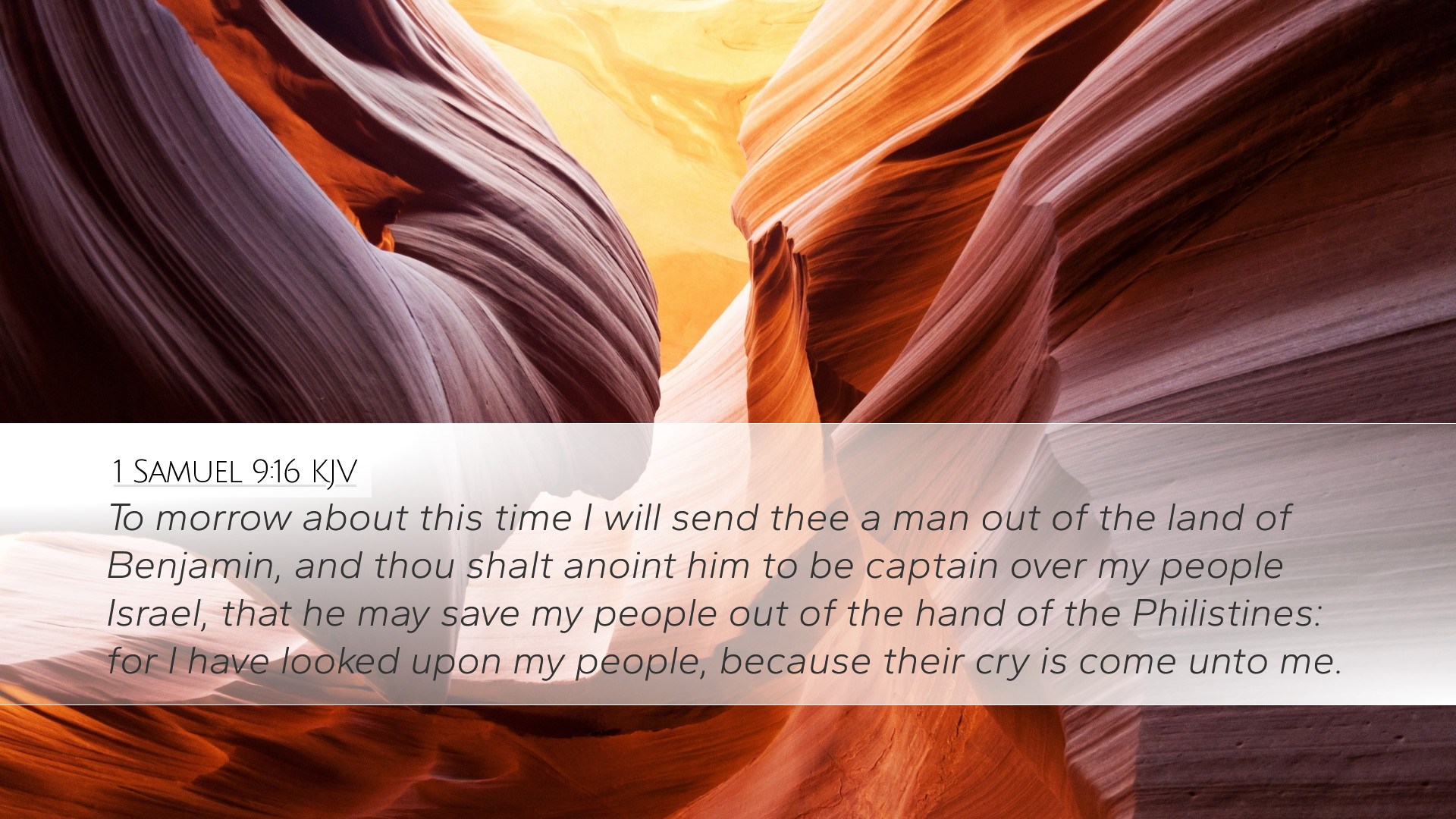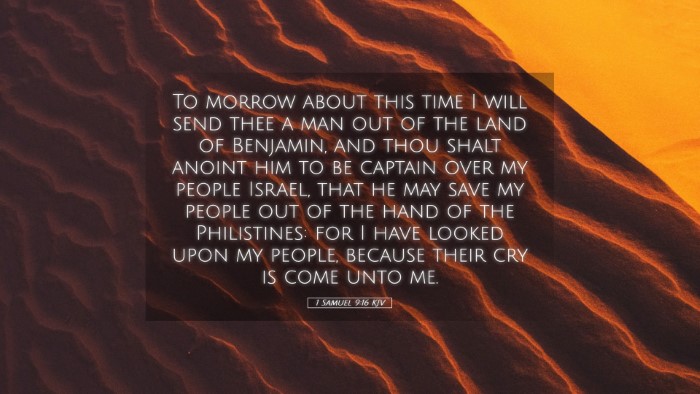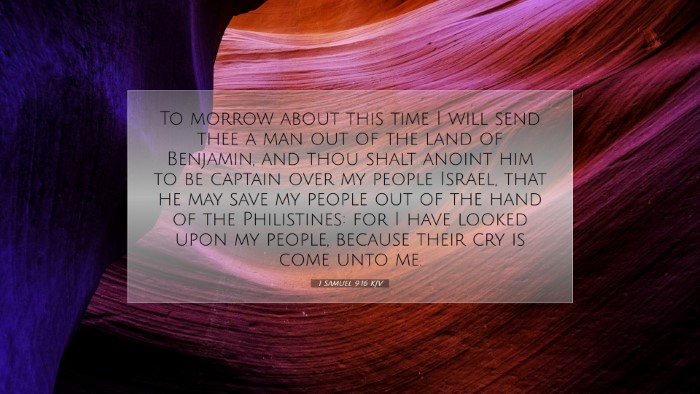Commentary on 1 Samuel 9:16
Verse Context: 1 Samuel 9:16 states, “Tomorrow about this time I will send you a man from the land of Benjamin, and you shall anoint him to be prince over my people Israel. He shall save my people from the hand of the Philistines, for I have seen my people, because their cry has come to me.” This verse marks a pivotal point in Israel’s history as the transition from a theocracy to a monarchy is underway, and it is fundamental in understanding the divine choice of Saul as king.
Divine Selection for Leadership
Matthew Henry emphasizes the sovereignty of God in the anointing of leaders. He notes that God chooses a man “from the land of Benjamin,” indicating that the leadership will come from a humble beginning. God's choice is often contrary to human expectations, signaling that He can raise leaders from unexpected places.
In this moment, we see that God has not abandoned His people despite their request for a king, but is instead responding to their cries. Henry contrasts the invisible hand of God working behind the scenes with the visible election of Saul, urging readers to recognize how God orchestrates events according to His divine purpose.
The Role of Anointing
Albert Barnes elaborates on the significance of anointing in this context, defining it as a divine appointment to serve in a leadership role. He draws attention to the term “prince,” emphasizing that Saul is not merely given power but is appointed to serve the people, reflecting the biblical principle that leadership is a form of servitude.
- Theological Implications: Barnes argues that the act of anointing represents God’s approval and is a sign of His presence and blessing.
- Cultural Context: The practice of anointing in ancient Israel denoted authority and was often accompanied by the empowering of the Holy Spirit for leadership.
- Symbol of Protection: Through this action, Saul is not only chosen to lead but is also given the divine mandate to protect Israel from its enemies, notably the Philistines.
Responding to Human Need
Looking closely at the phrase “for I have seen my people,” Adam Clarke brings attention to God’s empathy and awareness of His people's suffering. Clarke highlights the theological viewpoint that God is attentive to the cries of His people, signifying His active involvement in human affairs.
Clarke also points out that God’s response to Israel’s request hinges on their repentance and acknowledgment of their dire situation. This moment serves as a necessary reminder for contemporary believers—the importance of crying out to God in times of distress and the necessity of a humble heart in receiving His guidance.
Implications for Leadership
The character of the leader that God chooses becomes a crucial discussion in understanding this verse. The selection of Saul should be viewed through the lens of divine providence rather than human merit. Henry states that Saul was “a choice young man, and goodly.” However, this beauty and outward capability can be deceptive.
- Divine Oversight: Both Henry and Clarke remind us that God sees beyond outward appearance to the heart. God's leadership criteria are distinct from human evaluations.
- Potential for Failure: There's a cautionary note here as well; in choosing Saul, we see that even those called by God can falter, a crucial lesson for both leaders and congregants.
- Legacy of Leadership: Clarke adds that Saul’s reign serves as a dual example of what it means to be a chosen leader who can either succeed or reject divine guidance.
Conclusion: A Call to Faithfulness
In summary, 1 Samuel 9:16 is rich with theological and practical insights. The verse underscores the following key themes:
- God’s Sovereignty: The selection of Saul exemplifies how God is actively guiding history for His purposes.
- Leadership Calling: It illustrates the importance of divine anointing and servanthood as essential aspects of leadership.
- Responsive Prayer: It serves as a reminder to consistently bring our cries to God, trusting His wisdom in providing for our needs.
As pastors, theologians, and students engage with this text, they are encouraged to reflect deeply on God’s character revealed in His choice of leaders and to seek continual alignment with His will in their own leadership journeys.


